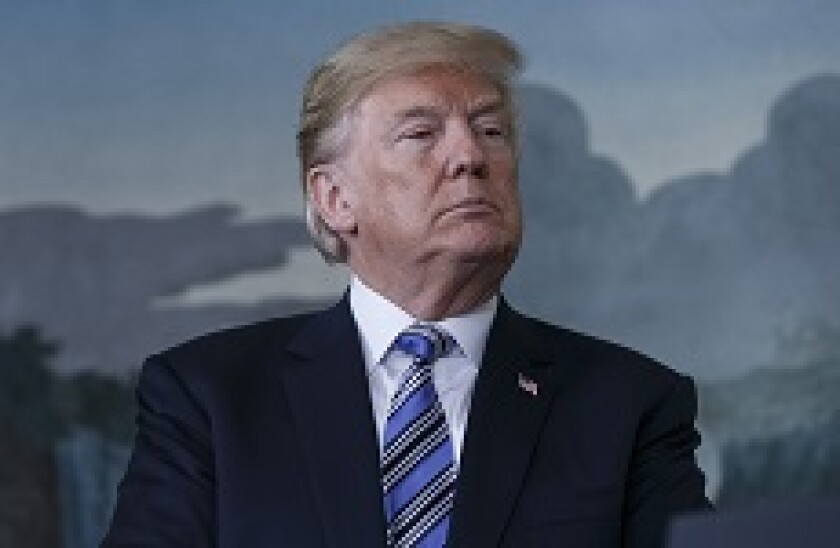Donald Trump is planning to bar Chinese companies from investing in US technology firms, a move that comes shortly after he asked the US Trade Representative to install 10% tariffs on $200bn worth of Chinese imports last week, according to a June 24 media report, citing sources familiar with the policy .
Th e US Treasury is drafting guidelines that will stop companies with at least 25% Chinese ownership from acquiring US companies involved in what the US government will choose to define as 'industrially significant technology'. The National Security Council and Commerce Department are also planning to strengthen export controls to prevent the transfer of technologies to China, the media report claimed.
The new restrictions appear designed to hinder the Made in China 2025 initiative, Beijing’s strategy to become a world leader in industries such as aerospace, electrical autos and biotechnology.
The reserve requirement ratio (RRR) for Chinese banks will fall by 0.5 percentage points starting on July 5, the PBoC said in a June 24 statement.
The cut will cover most onshore banks, including the big five — Agricultural Bank of China, Bank of China, Bank of Communications, China Construction Bank, Industrial and Commercial Bank of China. The move will release Rmb700bn ($107.9bn) of liquidity into the banking system, according to a Q&A published by the central bank on the same day.
This is a targeted move to support debt-to-equity swaps and to make access to funding easier for micro and small enterprises, said the PBoC. The central bank, which last cut the RRR by 100bp on April 25, insisted that China’s monetary policy remains neutral.
Foreign investors under the qualified foreign institutional investor (QFII) and RMB QFII (RQFII) programmes can now access the National Equities Exchange and Quotation (NEEQ), an exchange for small and medium enterprises, a spokesperson for the exchange told Xinhua on June 22.
The change came after the State Council said in a June 15 document that government ministries should improve the regulations for QFII and RQFII schemes, establishing a transparent system which is easy to use for foreign investors, with the goal of supporting the onshore capital markets.
China has appointed a new monetary policy committee, the State Council said in a June 15 statement. Yi Gang, governor of the PBoC, will lead the 14-strong committee, replacing Zhou Xiaochuan, his predecessor as governor, as the chairman.
Two deputy PBoC governors, Pan Gongsheng and Chen Yulu, sit on the committee. Guo Shuqing, party chief at the central bank and the head of the China Banking and Insurance Regulatory Commission, and Liu Shiyu, head of the China Securities Regulatory Commission, are also part of the club.
Other members include Liu Wei, deputy finance minister, and Lian Weiliang, vice chairman of the National Reform and Development Commission.
International banks will no longer be subject to a foreign ownership cap when setting up investment or wealth management companies in the Shanghai Free Trade Zone (FTZ), officials in the FTZ told local media on June 21.
This follows China’s decision last November to scrap the foreign ownership cap across the financial sector, and president Xi Jinping’s speech at the Boao Forum for Asia in April, where he pledged China will implement the measure as soon as possible .
Th e FTZ will also raise the foreign ownership cap for securities, fund management, and futures joint ventures (JVs), and encourage foreign financial institutions to take bigger stakes in existing JVs. Foreign credit rating agencies are also encouraged to set up branches in the FTZ and start rating onshore bonds in the interbank bond market .
I n addition, the FTZ will support central banks and international finance organisations that want to set up branches and representative offices, as well as encourage overseas-listed Chinese companies to list Chinese Depository Receipts in Shanghai. The FTZ also wants to launch the Shanghai-London Stock Connect within this year.
Our most recent stories:

